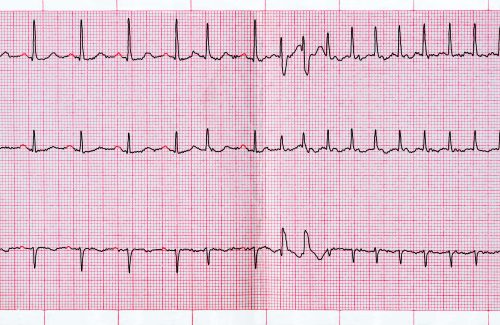
Atrial fibrillation-flutter (AF), an arrhythmia characterized by irregular contractions in the heart’s upper chambers, is seen in up to 25% of patients after they receive a heart transplant. Data regarding the potential relationship between heart transplantation and AF are currently limited by the small scale of existing studies. To address this discrepancy, researchers from the University of Iowa Hospitals and Clinics analyzed the National Inpatient Sample (NIS) database to assess the prevalence of AF in patients who have undergone heart transplantation. Their work was published in the August 2019 edition of the Journal of Cardiac Failure and was featured at the Heart Failure Society of America (HFSA) 23rd Annual Scientific Meeting held in Philadelphia this month.
Background of the Atrial Fibrillation-Flutter Study
The data used in this research was collected from the NIS database and the US Census Bureau and pertained to patients who underwent heart transplantation between 2005 and 2014. The team used this information to determine the annual national rates of in-hospital mortality and length of stay in these patients who were admitted for AF between 2012 and 2015.
In-hospital outcomes of AF after the operation were then compared to an age and gender-matched group with no AF, with a multivariable logistic regression of significant hospital and patient attributes to identify predictors of mortality in the hospital.
The researchers identified 1,000 total hospitalizations for AF in heart transplant patients. The average age in this group was 59 years, with 71.9% of these patients being male and 81.3% being Caucasian. The most common comorbidities were hypertension (68.3%), chronic renal failure (38%), diabetes mellitus (34.4%), and obesity (10.8%). In addition, 79.49% of these hospitalizations were non-elective, and anticoagulation was found to occur in 11.5% of the hospitalizations.
Cardioversion, an electric shock performed to restore the heart’s natural rhythm, was performed in 31.2% of the patients and ablation, or destruction of improperly functioning cardiac tissue, in 11.4%. The authors note that the number of hospitalizations for AF patients undergoing ablation and cardioversion was stable over the 10-year study period. 70% of these cardioversions and ablations were performed in male patients.
The rate of in-hospital mortality was only 1.48%, and the average duration of hospital stay was 3.29 days. AF was not found to be associated with hospital mortality after a propensity match analysis and multivariable logistic regression (Odds Ratio 1.21, 95% CI 0.8-1.9, P=0.4).
The researchers concluded that AF was not found to be an independent predictor of death in these patients, and that “a small and stable portion of HT (heart transplant) recipients is hospitalized for AF from 2005 to 2014.”
Author Affiliations
The lead author of this publication is Chakradhari Inampudi, MD, University of Iowa Hospitals and Clinics, Iowa City, IA. Other authors of the work include Dinesh C. Voruganti, Michael C. Giudici, and Alexandros Briasoulis of the University of Iowa Hospitals and Clinics.







 © 2025 Mashup Media, LLC, a Formedics Property. All Rights Reserved.
© 2025 Mashup Media, LLC, a Formedics Property. All Rights Reserved.